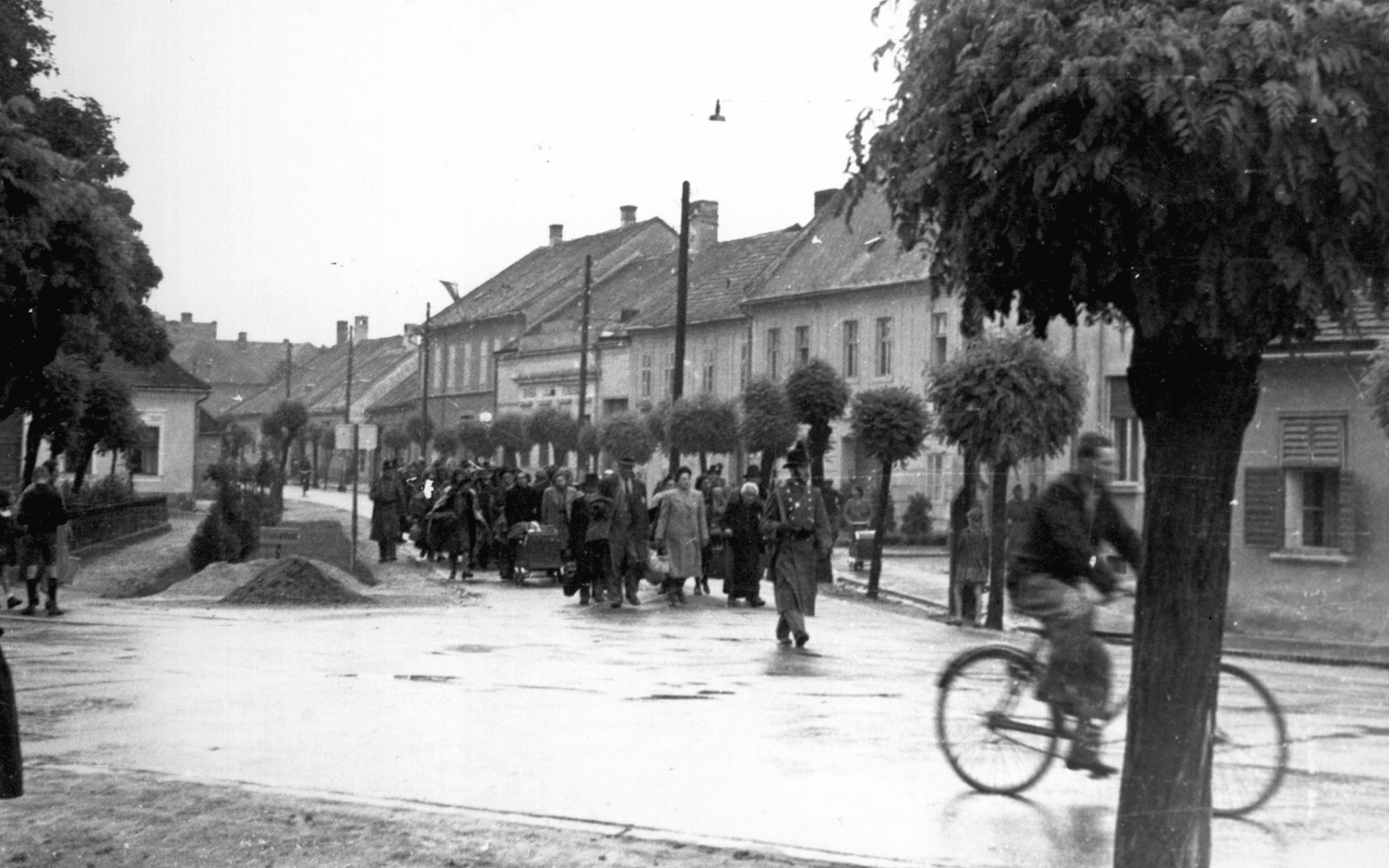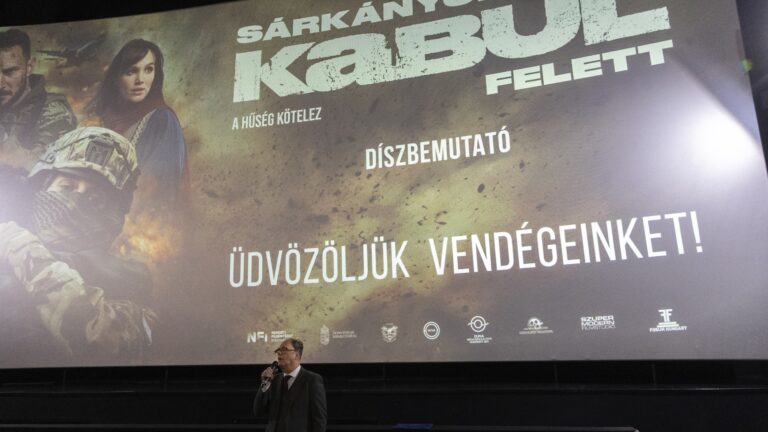This is the final, concluding piece in our series of articles discussing the role of the so-called Jewish police under the German occupation of Hungary in 1944. (You can read the previous two pieces here and here). As we have explained, the Jewish police hardly had any serious role in the deportations and was not involved in any significant actions during the Hungarian Holocaust. Unfortunately, post-war public opinion and authorities had a misguided perception of the role of Jewish policemen.
The public discourse of the time, spearheaded by the left-wing press, was bloodthirstily demanding the holding accountable of those responsible for the horrors of the Second World War, forming an opinion first and only asking questions afterwards. This attitude was understandable with regard to far-right politicians, but its contradictions were apparent, for example, in the anti-Semitic press comments on the people’s court trials of the Jewish police. The articles presenting the ‘Jupos’ (Judenpolizei, a term that was not used in Hungarian during the ghettoization) were sensationalist writings, often highlighting the alleged ‘sins’ of the Jews involved. Mention of Jewish policemen in the press of the time was exclusively negative. For example, one newspaper jokingly referred to a Jewish policeman as ‘the persecuted one who persecuted the persecuted ones’,[i] and Népszava also explained that ‘the Jupos came from among the deportees and in order to ensure a better fate for themselves, they betrayed their comrades and tortured them to death more than once’.[ii] Although the paper mentioned ‘deportees’, the article actually referred to Jewish police officers still active in Hungary.
The papers apparently reflected public sentiment to some extent. It is typical that in the city of Miskolc—which came under Soviet control in December 1944—as early as in January 1945 (!), various Jewish survivors named Steiner published a statement in the local press, distancing themselves from a certain Jewish policeman called József Steiner and his alleged crimes. Their declaration said: ‘the undersigned are not the person in question’.[iii]
Two Jewish policemen are known to have been tried by the People’s Court for their actions
Although some newspapers reported on the mass prosecution of Jewish policemen in Szeged, the individuals identified as Jewish policemen were in fact local Arrow Cross activists. At present, two Jewish policemen are known to have been tried by the People’s Court for their actions. Lajos Gondos (Gottlieb), the 600-strong Jewish police commander of the Simapuszta internment camp was tried by the People’s Court in Nyíregyháza (on 3 May 1946 he was sentenced to two years in prison) and by the National Council of People’s Courts (NOT) in Budapest on 21 October 1946, where he was acquitted. We also know from press reports about the case of István Várkonyi (Weimann), who was the head of the 50-strong Jewish police force of the Harka concentration camp. According to the charges, Várkonyi beat the deportees, confiscated bread rations and handed Jews over to the Germans—but it is not clear whether he did this in Harka or in the Gunskirchen camp (a subcamp of Mauthausen), if at all. On 26 July 1947, the People’s Court in Budapest sentenced Várkonyi to five years of hard labour for ‘treating the deportees harshly beyond what his job expected of him’.[iv]
We know the most about the proceedings against Gondos, as his entire case file has survived. Lajos Gondos was arrested on 20 July 1945, shortly after his return from the Rehmsdorf subcamp of the Buchenwald camp complex. His denouncer was a former prisoner from Simapuszta, Márton Holländer, who said that Gondos had tortured the deportees ‘in the most intolerable way’. Gondos’s trials provide an interesting and unique insight into the judgement of the Jewish police by a People’s Court.[v]
The Nyíregyháza People’s Court convicted Gondos as a war criminal for inflicting psychological wounds on his fellow Jews that ‘exhaust[ed] the concept of torture’. During the trial, Gondos admitted that he had indeed hit a Jew, but claimed that he had struck him with the palm of his hand, not with a stick, and only because the man ‘refused to obey’. As was usual in trials involving ‘Jewish collaboration’, vicious accusations that had little to do with the charges were also made against the defendant. One survivor said that Gondos had hit his sister when he was still a schoolteacher, before the German occupation, and also claimed that the Jews of Simapuszta had turned to the gendarmes because of Gondos’ behaviour, and that the gendarmes themselves had condemned his acts—which diminished the role of the real culprits.
The discriminatory nature of the Nyíregyháza People’s Court verdict was not even concealed: ‘In the opinion of the People’s Court, the beatings that the deportees received from the accused who was of the same religion and ethnicity were several times more painful, humiliating and torturous than if they had received them from the gendarmes or SS men’. Moreover, the People’s Court unfairly refused to categorise Gondos’s acts as ‘crimes against the people’, a less grave criminal offence than being a war criminal, because, as a Jewish policeman, he was not a public official under Act XVIII of 1940 and only a public official could be a ‘criminal against the people’. This was, of course, disingenuous, since in 1940 the institution of the Jewish police did not yet exist, and in 1944 and 1945 the institution was not legally established. The verdict made it clear that Gondos had ‘betrayed his own kin’, and that the only reason he was not sentenced to forced labour was his age (he was 56 at the time).
It was impossible to maintain order without violence
The NOT, on the other hand, exonerated Gondos on the grounds that although the Jewish police commander had indeed beaten some Jews, it was impossible to maintain order without violence. The appellate court also accepted as a mitigating circumstance that he had maintained order and hygiene in the camp. The NOT further disputed whether the beating constituted torture and also referred to the fact that the violence was ‘in the interest of the Jews’. However, it upheld the Nyíregyháza People’s Court’s assertion that violence ‘of this kind against his kin’ was not justified. Gondos protested in vain that he ‘was not…an enemy’ of his ‘own race’ and of his ‘fellow countrymen’.
While Gondos’s trial had a ‘positive’ ending, the newspapers did not report on the second, final verdict, and even many years later Israeli newspapers still referred to him as a collaborator. Alas, these final judgements did not help the accused Jews clear their names or get reparations for the months or years spent under arrest.
[i] Világosság, 27 July 1947.
[ii] Népszava, 7 June 1945, 2.
[iii] Szabad Magyarország (Miskolc), 10 Jan. 1945, 2.
[iv] Kis Újság, 5 July 1947, 2. and Szegedi Népszava, 27 July 1947, 2.
[v] For the passages of the trial proceedings cited here see: MNL SzSzBMNL, XXV.1.142.1945. 5–7., 13-14., 38., 55., 59., 60.







